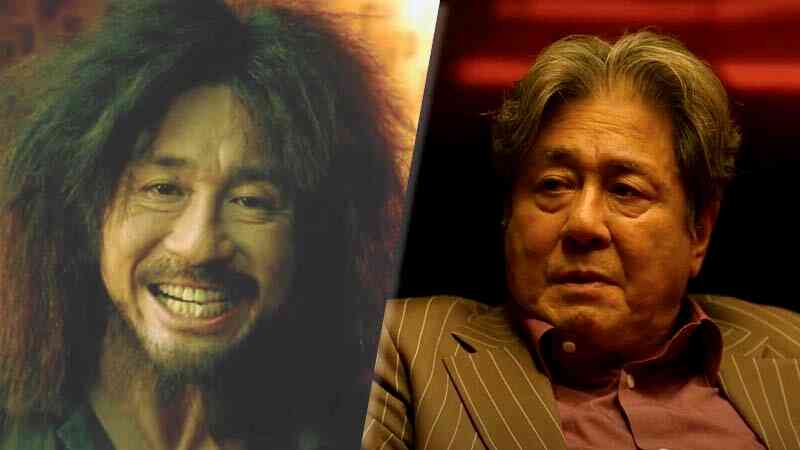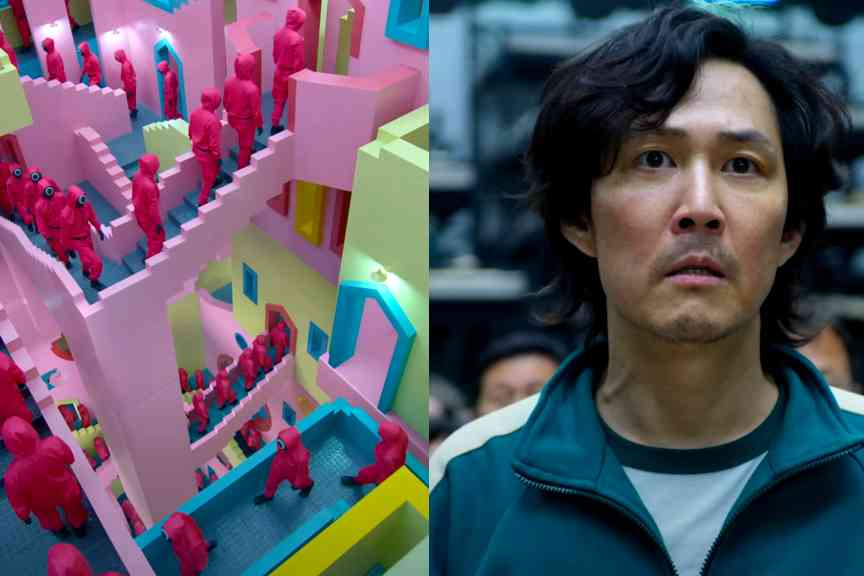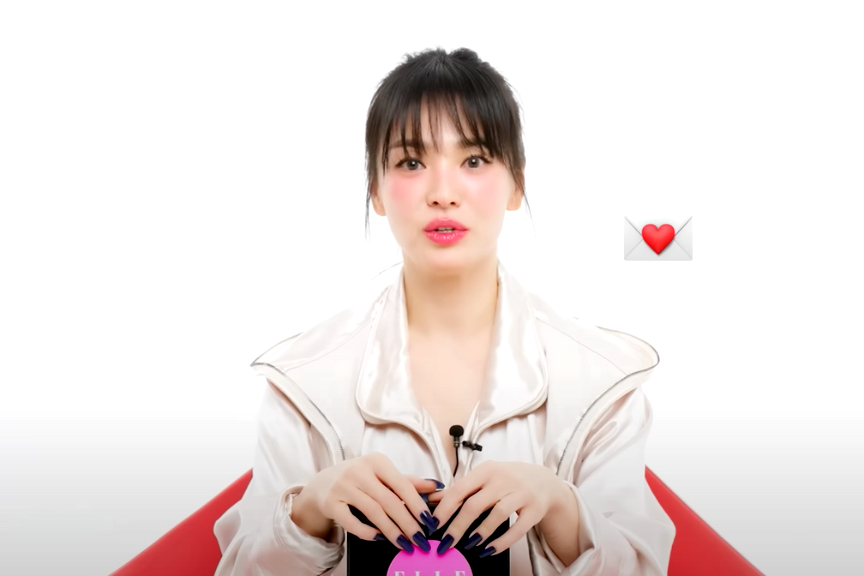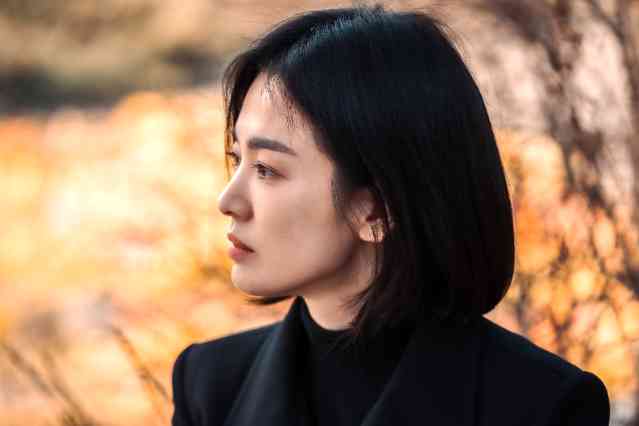The demand for South Korean entertainment shows no signs of slowing down anytime soon.
Korean culture has become a global phenomenon, with BTS‘ ARMY and other K-pop fandoms driving explosive growth and shows like Netflix’s “Squid Game” setting unprecedented viewership records.
When it comes to film, while the 2020 Oscar win for Bong Joon-ho’s “Parasite” heightened Korean cinema’s exposure to Western audiences, it was around the turn of the century that saw the industry’s initial arrival on the world stage with Park Chan-wook’s “Oldboy” taking home the Grand Prix award at the 2004 Cannes film festival.
The film’s lead actor, Choi Min-sik, was already a star back at home, but his haunting revenge performance catapulted him into the international spotlight. Choi went on to cement his legacy with one hit film after another, including the 2014 blockbuster “The Admiral,” which held the record for the country’s highest-grossing domestic film for five years.
After more than two decades away from the small screen, the beloved 61-year-old actor returned last year in the crime drama “Big Bet.”
With the show now airing its second season, Choi sat down with NextShark to discuss the changes he’s witnessed in the industry throughout his career. On the growing popularity of Korean entertainment, he qualifies his enthusiasm with the need to preserve the cultural identity of his country’s filmmaking as it meets the demand of newer audiences.
Reflecting on his legendary performance in “Oldboy,” Choi shares mixed feelings.
On one hand, he admits that he doesn’t want to be defined solely by his work as the retribution-seeking Oh Dae-su. “I actually wanted it to be forgotten,” he says.
“Of course as an actor, if your work is successful you should be very delighted, but then if that image lingers on with you, then that could work against your next step.”
Nevertheless, he shares a sense of fondness for the “dreamlike” period that followed the film’s never-before-seen level of reach, which instilled a new kind of pride for creators in Korea:
“People started taking pride in what they produce here in Korea, especially the creators of ‘Oldboy,’ so I really cherish that moment.”
Choi’s extensive filmography includes collaborations with virtually every other top Korean star that’s set foot on the global stage in recent years, from Lee Jung-jae, Park Hae-soo and Lee Byung-hun of “Squid Game” to Youn Yuh-jung in “Minari,” to Song Kang-ho in “Parasite,” among many others. It’s almost as if working with Choi is a surefire indication that an actor is destined for international stardom.
“It’s really invigorating that Korean content is speaking to the global audience,” he says. “The purpose of creating content is to communicate with an audience and exchange a nice conversation. We’re not just speaking with our local audience anymore, but with a global audience. So I’m just really happy that it’s happening.”
On the flip side, however, globalization has sparked concerns about preserving the foundation of Korean filmmaking.
As Korean films continue to cater to the world’s demand, there are fears that they might lose their identity.
The actor heeds caution: “That’s exactly the point that I’m concerned about – preserving Korean culture while providing entertainment to a global audience.”
Stressing the need to put substance and quality at the forefront, he says:
For example, “Squid Game” is a big global hit, but the director and the actors – they did not know in the beginning that it would come to that. They were just really happy to make a show and to stay true to the narrative, and that’s what really spoke to the global audience. If it goes the other way and if you think about trying to export your work to the global world or the global market, you’re going to go down, definitely.
For Choi, the thought of catering to Western audiences doesn’t even cross his mind when considering projects.
For creators, it’s not just an export. It’s not something that we produce to export. We have to convey the lives of the characters in earnest. So I think it’s absurd to think about it in a way that’s more business-minded when you’re trying to act. We’re trying to create a story. I don’t think anybody, any actor or actress in Korea has in mind to become a global star or to hit the American audience with this movie. We don’t think about that. We just act in earnest. And even if you think about it that way, I don’t think it will work that way. So all we try to do is try to convey the story of the characters earnestly.
His return to television in “Big Bet” provided him with a chance to explore the complexity of characters over a longer period, where there is less pressure to cram every last detail into a limited running time.
“If it’s a series, whether it be 10 episodes or 16 episodes, you can really get into detail and show the narrative arc of the people,” he explains.
In Season 1, viewers saw Choi’s Cha Moo-sik climb the ranks of the casino industry, engaging in illicit activities and gathering enemies along the way. In Season 2, he returns to face even more life-or-death situations, with an accusation of murder hanging over his head and everything he worked so hard to build at risk.
There are a lot of different desires in the show’s casino setting. People clash over money and clash over their interests. But Cha Moo-sik could be any one of us. I think our lives and people – we can’t be simplified. We aren’t just one type of person and there isn’t just one type of life that we lead.
Over the years, Choi also had the opportunity to work in Hollywood, starring alongside Scarlett Johansson in Luc Besson’s 2014 film, “Lucy.”
Apart from a language barrier, the process was hardly any different for him.
“I was curious how [Luc Besson] would work and how the Hollywood system is different from the Korean system, but when I went there, I found that it was exactly the same.” He even recalled the moment he stepped foot on set and attempted to identify the crew members’ responsibilities, guessing correctly nine out of 10 times.
While Choi appreciates the experience, having been a huge admirer of Besson prior to their work together, he admits that working in Hollywood again is unlikely. “I would need to learn more English,” he shrugs.
Instead, he’s open to comedic roles, perhaps even a rom-com — a departure from his other notable roles, including a North Korean agent, a serial killer and an admiral.
“I’d love to do a rom-com,” he says with double thumbs-up. “I think I’m hilarious too.”
While the expansion of Korean entertainment opens the doors to endless possibilities, one thing that remains unchanged is Choi’s enduring passion for his craft. Despite being a fixture in the Korean film industry for decades, he retains the same wide-eyed eagerness to explore fresh characters and stories.
I’m not a businessman. For me, it’s just fun to participate in work. I just like to act, and exporting to other countries or becoming a huge hit – that’s what comes after acting. I don’t think it’s something that I aim for. Of course, if a lot of people enjoy my work, I’m really happy about that. But that will never be my goal. And it was the same when I decided to work.




